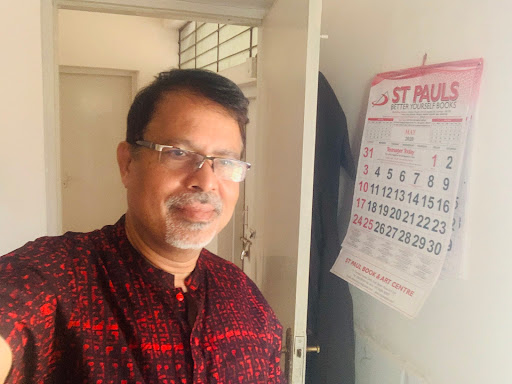Franciscan presence in
Africa goes way back to the time of St. Francis himself .
Francis is the first founder of an Order to include a chapter
in his rule (Rb XII) about a missionary outreach. The spread of the Friars to
the different part of Africa was likewise promoted by advice given to St.
Francis by Clare and Silvester – “God did not call you to this state only on
your own account, but that you may reap a harvest of souls and that many may be
saved by you."Friars went in pairs to respond to the missionary
call (1 Cel 29). Francis himself had plans to go to Syria in 1212 and later on
to Morocco but he only managed to reach Spain (1 Cel 55-56). In his third
attempt he managed to get to Egypt to meet with Sultan Malek al-Kamil (1219)This
was a great historical unveiling of Franciscan presence in Africa. The Capuchins have been in African through
different phases. The earliest recorded
Capuchin presence goes back to the year 1549 when friars arrived in Egypt,
Morocco, Tunisia, and Algieria

I
have reservations about referring to founding provinces as mother provinces. To
me when you refer one as a mother, you would always appear as inferior. A
concept of dependency on the mother will not cease. A concept of referring to others
as “mothers” would make some of the jurisdictions never grow and take
responsibility. They perpetuate the philosophy that there is a mother somewhere
who can take care of us. It is better if we refer to each other as “Sister Provinces.” As sisters we walk
together as “equals” but not dependent. We accompany each other and walk
shoulder to shoulder with each other. Allow me not only in this discussion but also
from now onwards to refer other founding jurisdictions as sisters rather than
mothers. They are equal partners as brothers not as family members who are
superior to us


In 1970s a prominent
churchman initiated an unpopular debate which raged on within the Christian Churches
in Africa for a while before it died. Gatu had suggested that there should be a
moratorium or freeze on Western missionaries and money to Africa for a period,
to allow the African Church to find its own place in the universal Church
unfettered by Western influence. According to Gatu, in order for the African
Churches to become economically independent first you had to stop the donations
from the west. Building on that, as long as subsidies
continue from the General Curia and support from sister Provinces, our
jurisdictions would never become self reliant and sufficient. Yet when subsidies were removed from Latin
America and Indian jurisdictions they were able to go forward.


There is a big challenge
on vocation of our lay friars. This has
been one of the vulnerable areas in our formation program. Many of our
jurisdictions have no planned vision or program for the formation of lay friars
after novitiate.
Due to lack or great decline of lay friars’
vocation our jurisdictions are challenged by becoming more clerical and losing
both our identity and charism as Capuchins. Let us use a gathering like this not
only to discuss how to get more lay friar vocations but also how we can jointly plan a good program for them



The two
conferences in Africa which are composed by a number of jurisdictions
are economically struggling. Many if not all of
our Circumscriptions are supported by formation and mission subsidies, support
from Sister Provinces and other sources from outside. This situation results in many uncertainties
for the future. The jurisdictions are
differently challenged. It is time to come together and see how we could
economically share among ourselves and overcome the current precarious
situations



There is a great disparity in the number and
availability of personnel in our
jurisdictions. The
need for personnel differs from one jurisdiction to the other. Some are more in
need of personnel than others. There is
no Circumscription in the world which is fully satisfied when it comes to the
area of personnel. This is more urgent when it comes to the personnel working
in initial formation as more committed friars are needed in this area. That being the case, sharing personnel could
have solved or mitigated some of these problems.
This kind of
sharing of personnel has been observed in some places in our conferences. In
EACC the Province of Eritrea has been assisting the Custody of Ethiopia with
formators, some of them on a long term basis, others simply as temporary
visitor. The same Province and Custody have extended help to the Custody of
Cameroon. Similarly, a friar from the Custody of Uganda in the past had been teaching in the Philosophy college
in Bambui.
In
the past also friars outside our Conferences have been invited to help in our
centers of initial formation. These were Indian friars who have been
accompanying Friars from different jurisdictions in Langata – Nairobi. Another
area is that of Lusaka Zambia where friars from USA, Argentina, and Great
Britain have been teaching in St. Bonaventure Lusaka. If that was possible with friars coming outside
Africa why would it not be possible within our Conferences.


No comments:
Post a Comment